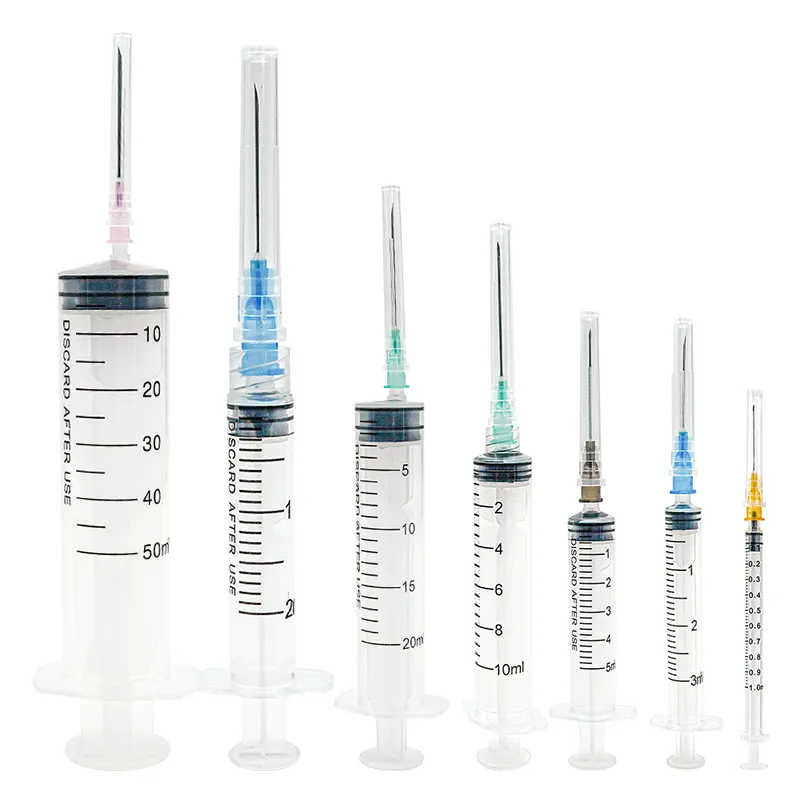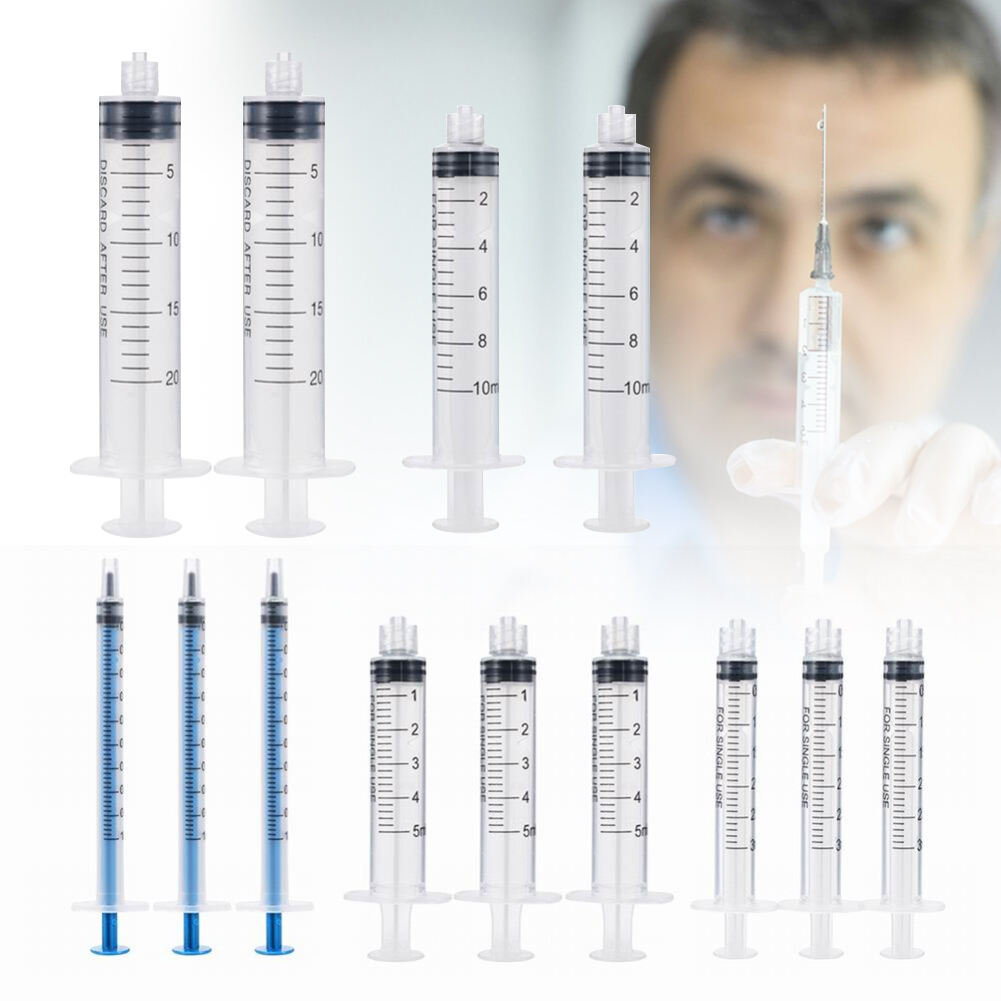Understanding Modern Medical Injection Delivery Systems
In the evolving landscape of medical technology, injection syringes remain fundamental tools in healthcare delivery. These precision instruments have transformed dramatically from their earliest iterations, now offering healthcare professionals an extensive array of options for various medical applications. From routine vaccinations to specialized treatments, injection syringes serve as the primary interface between medicine and patient care.
The medical field relies heavily on accurate and efficient drug delivery systems, with injection syringes at the forefront of this crucial requirement. Understanding the various types of injection syringes and their specific applications helps healthcare providers deliver optimal patient care while ensuring safety and precision in medical procedures.
Common Types of Injection Syringes in Modern Medicine
Conventional Disposable Syringes
Conventional disposable syringes represent the most widely used category in medical settings. These injection syringes typically consist of a plastic barrel, rubber plunger, and stainless steel needle. Available in various sizes ranging from 1ml to 60ml, they accommodate different dosage requirements and medication viscosities.
The design features graduated markings for precise measurement and a universal Luer lock or slip tip system for secure needle attachment. Healthcare providers particularly value these syringes for their reliability in routine procedures, from administering vaccines to drawing blood samples.
Safety-Engineered Syringes
Safety-engineered injection syringes incorporate advanced features to prevent needlestick injuries and cross-contamination. These sophisticated devices often include retractable needles, needle shields, or other protective mechanisms that activate automatically after use.
Healthcare facilities increasingly adopt these syringes to comply with safety regulations and protect both medical staff and patients. The additional safety features make them particularly valuable in high-risk environments or when handling hazardous materials.

Specialized Injection Syringe Variations
Insulin Syringes
Designed specifically for diabetes management, insulin syringes feature precise calibration for insulin unit measurements. These injection syringes typically have shorter, finer needles to minimize discomfort during frequent injections. The barrel markings are specifically designed to measure insulin units accurately, essential for proper diabetes management.
Modern insulin syringes often incorporate features like easy-to-read scales and comfortable grip designs to assist patients with self-administration. The needle length and gauge are optimized for subcutaneous injection, the preferred method for insulin delivery.
Prefilled Syringes
Prefilled injection syringes represent a growing segment in medical delivery systems. These ready-to-use devices come pre-loaded with specific medications, eliminating the need for manual filling and reducing the risk of dosage errors. Healthcare providers appreciate their convenience in emergency situations and routine procedures.
The pharmaceutical industry continues to expand the range of medications available in prefilled syringes, recognizing their benefits in improving safety, accuracy, and efficiency in medical settings. These syringes often feature specialized coatings and materials to ensure drug stability and shelf life.
Technical Specifications and Selection Criteria
Needle Gauge and Length Considerations
The selection of appropriate injection syringe specifications plays a crucial role in successful medical procedures. Needle gauge, typically ranging from 14 to 31 (with higher numbers indicating finer needles), must match the medication's viscosity and intended delivery route. Similarly, needle length varies based on the required injection depth and patient characteristics.
Healthcare professionals must consider factors such as the patient's body mass, injection site, and medication properties when selecting the appropriate needle specifications. This careful consideration ensures optimal drug delivery while minimizing patient discomfort.
Material Composition and Compatibility
Modern injection syringes utilize various materials, each chosen for specific properties and compatibility requirements. The barrel typically consists of medical-grade plastic, while needles use high-quality stainless steel. Manufacturers must ensure all materials meet stringent biocompatibility standards and remain stable with various medications.
Special considerations include silicon coating for smooth plunger movement and specialized materials for storing sensitive biologics. The choice of materials significantly impacts the syringe's performance, medication stability, and overall safety profile.
Emerging Trends in Injection Syringe Technology
Smart Syringes with Digital Integration
The future of injection syringes increasingly incorporates digital technology. Smart syringes equipped with sensors can track injection data, ensure proper dosing, and integrate with electronic health records. These advanced systems help healthcare providers monitor compliance and improve patient outcomes.
Digital features may include temperature monitoring, injection force measurement, and connectivity capabilities. This technological integration represents a significant step toward more precise and documented medical procedures.
Environmentally Sustainable Solutions
As environmental concerns grow, manufacturers are developing more sustainable injection syringe options. This includes biodegradable materials, reduced packaging waste, and more efficient production processes. The healthcare industry increasingly demands eco-friendly alternatives without compromising safety or effectiveness.
Innovation in this area focuses on maintaining high performance while reducing environmental impact. Some manufacturers now offer recycling programs for certain components, while others explore novel materials that decompose more readily after disposal.
Frequently Asked Questions
How Long Can an Injection Syringe Be Safely Stored?
Sterile injection syringes typically maintain their integrity for 3-5 years when stored properly in their original packaging. However, once the package is opened, the syringe should be used immediately to maintain sterility. Always check the manufacturer's expiration date and storage recommendations.
What Makes Safety Syringes Different from Standard Ones?
Safety syringes incorporate specialized mechanisms to prevent needlestick injuries and reuse. These features might include retractable needles, needle shields, or other safety devices that activate after use. They're designed to protect healthcare workers and prevent the transmission of bloodborne pathogens.
Can Different Types of Injection Syringes Be Used Interchangeably?
While some injection syringes may appear similar, they're designed for specific purposes and should not be used interchangeably. For example, insulin syringes have different measurement scales than standard syringes, and using them incorrectly could result in dangerous dosing errors. Always use the appropriate syringe type for its intended purpose.

